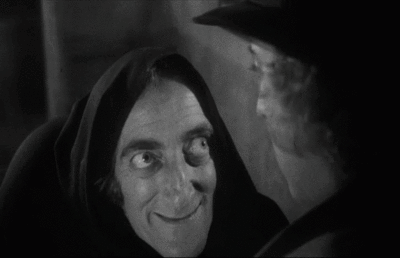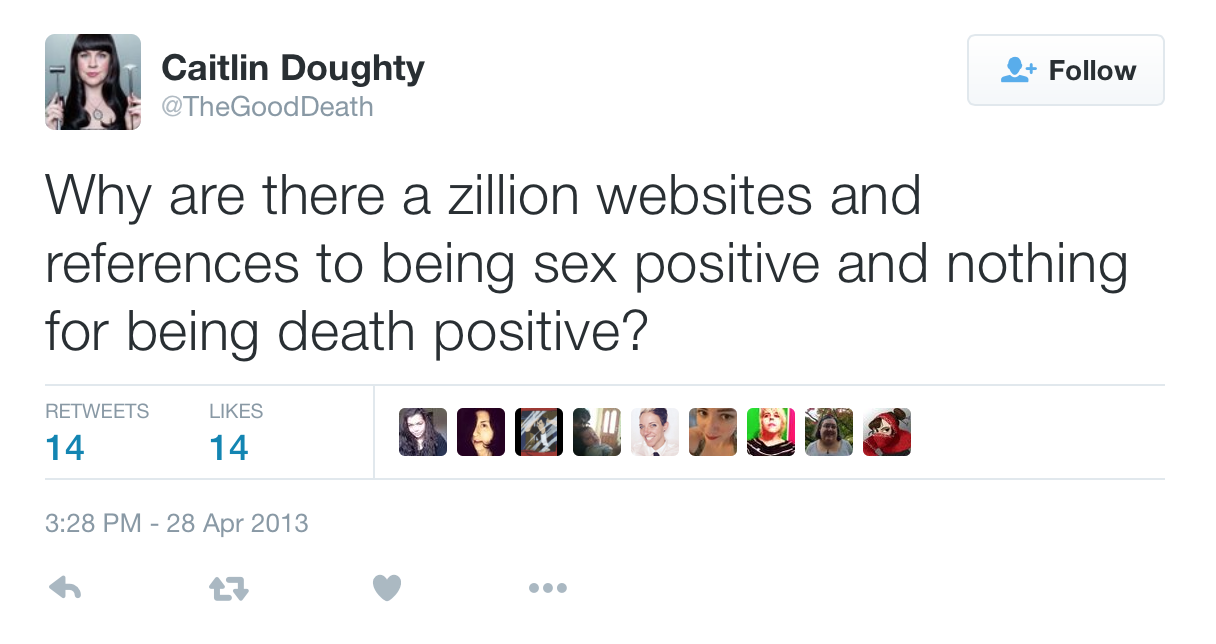
Five years ago today, this website launched to the public. Back then I was but a young mortician with modest goals and dewy hopes; fresh-faced, optimistic. Little did I know that I would spend the next five years morphing into the cruel hag creature I’ve become, a Renfield/Igor-like minion to death culture. What can I say… my story truly is the American dream.
This is a note to thank you for how far we’ve come these five years, and to remind you that we still have a long way to go. People all over the world want a chance to die better; to fear the spectre of death a little less. That desire has led to more people taking charge of their own death, more opening of natural cemeteries and offerings of greener options, more coverage in the media. But there are many still suffering– dying long, drawn out deaths they wouldn’t have chosen, leaving things undone and unsaid, engaging in death rituals that no longer hold redemption or meaning to them. Our cultural death denial is deeply entrenched, and we have only just begun to claw our way out of it.
Every step of the way, my own advocacy (and I think I can safely say the advocacy of my colleagues) has been profoundly influenced by you– the people who support, follow, and live the tenets of the movement.
The choices I’ve made and the projects I’ve undertaken (pun intentional) have always been in response to what you have shared with me. One of the best examples of this, is the use of the term death positive to describe what our movement is and what we advocate for.
I’m lucky to know a number of advocates in the sex positive community. My understanding of sex positivity was, in part: “I’m fascinated by human sexuality and my own relationship to sex and I refuse to be ashamed of that interest.”
I was sure if there was sex positivity, there would also be death positivity. But when I did the deep dive Google search, nothing. So several years ago I asked the Order of the Good Death’s Facebook and Twitter community about why that might be. As always, you had brilliant thoughts that helped shape what the death positive movement has become.
You also gave me the confidence to go ahead with using and promoting the term across my work.
Death positivity is saying, “I am fascinated by death, the history of death, how cultures around the world handle death, my own relationship to mortality, and I refuse to be ashamed of that interest.”
I may be preaching to the converted here, and perhaps you don’t need to hear this. But please, don’t EVER be ashamed of that interest. The only way we our going to change our messed up relationship with mortality is if people aren’t afraid to be really, truly interested. Fascinated. Enthralled. Devoted.
The work we do now will affect our future.
You constantly say that you want more ways to interact with both members of the Order and other people who share your feelings about death. We hear you, and are trying to make that a priority this year.
Here is a new video about three initiatives we’re launching:
{"@context":"http:\/\/schema.org\/","@id":"https:\/\/www.orderofthegooddeath.com\/article\/happy-5th-anniversary-deathlings\/#arve-youtube-ejltjhdmbzk","type":"VideoObject","embedURL":"https:\/\/www.youtube-nocookie.com\/embed\/EjltJhDmbzk?feature=oembed&iv_load_policy=3&modestbranding=1&rel=0&autohide=1&playsinline=0&autoplay=0"}
- The #DeathPositive Hashtag
- The r/DeathPositive Subreddit
- The Death Positive Pledge, a place to join the Order of the Good Death.
 We asked three of our beloved Order members what Death Positive means to them. Here’s what they had to say:
We asked three of our beloved Order members what Death Positive means to them. Here’s what they had to say:
My whole life I have been called “morbid” because I was interested in death. At a certain point I thought to myself, “what is so morbid about thinking about death, if everyone who has ever lived has died, and everyone I know today will die one day? Why is it morbid to spend time thinking about one of the great mysteries of human life, the foreknowledge of which arguably creates the human condition, and is the root of so much of art, culture, religion, and philosophy?”
Joanna Ebenstein, founder of the Morbid Anatomy Museum
There is so much potential for expanding and improving the way we do death. Imagine if we envisioned ourselves as part of the lifecycle, where dying was as wonderful and important as being born. It gives me shivers to think about how much better we can do.
Katrina Spade, founder of Urban Death Project
The last decade has been an extremely exciting time to work on all things death positive. There was a different time, not so long ago, during the era of 1980s/1990s AIDS protests and end-of-life activism pursued by ACT-UP, Queer Nation, and the Gay Men’s Health Crisis in New York that the term death positive meant something extremely different than today. The very idea of connecting death and positivity created a political urgency that thousands died pursuing. I think that today’s death positive activists should reflect upon this recent past in order to understand how pursuing end-of-life activism, both today and in the future, builds on many lives cut short far too early. The future of death positivity, I think, lies in seeing how its past incarnations most certainly created an activist playbook for the future. To me, this re-engagement with death acceptance is an extremely positive and hopeful development that in turn supports and encourages the end-of-life conversations happening everyday.
Dr. John Troyer, Director of the Centre For Death & Society
Here’s to a year of growth, both in your personal relationship with death and of the movement.


